Men’s basketball concludes season at NCAA second round
(Forum, pg 6)
Researchers publish article rebuking allegations of malpractice at Transgender Center
AVI HOLZMAN JULIA ROBBINS SENIOR NEWS EDITOR EDITOR-IN-CHIEF
A Washington University professor and UCLA researcher co-authored an article highlighting the importance of gender-affirming care for transgender youth as the University continues to investigate allegations of malpractice at the Washington University Transgender Center at St. Louis Children’s Hospital, Feb. 24.
Jeremy Goldbach, a Professor in Sexual Health and Education at Washington University, and Shannon Dunlap, a researcher at the University of California Los Angeles, published their article titled “Trans Kids Need Access to Evidence-Based Care” on the website of the Clark-Fox Policy Institute, which is part of the Brown School of Social Work.
CLARA RICHARDS HUSSEIN AMURI MANAGING EDITOR JUNIOR SPORTS EDITOR
The gym was crowded, the lights were on, and the bleachers were shaking all game over the stomps of students yelling “Defense! Defense!”
But in one of the most electric and competitive games the Francis Gymnasium has seen in the past 12 months, the No. 18 Washington University men’s basketball team lost to No. 19 North Park University in an agonizing and excoriating 72-69 defeat.
“When the ball stops bouncing for the season, you’re never quite prepared for it,” head coach Pat Juckem said. “It’s pretty raw, still. Painful, and a lot of credit to North Park. They’re a tough basketball team, and a tough group of young men. I’m just washed over with pride from ... our group of young men.”
With the loss, the Bears concluded the season with a record of 20-7 and officially exited the 2023 NCAA Men’s Division III basketball tournament. The Bears were led by graduate student
Charlie Jacob who finished with a team-high of 15 points and four rebounds. Sophomore Hayden Doyle helped himself to 13 points, dropped six assists, and grabbed five rebounds. First-years Yogi Oliff and Will Grudzinski shined on the biggest stage of college basketball as they each finished with 11 points respectively.
“I’ll tell you what — you can’t find a better group of guys out there,” senior Kevin Davet said.
“I’ve had an absolute blast at this for years, more fun than I’ve had in my whole life. It’s not because of basketball, but that’s because of the team that we have.”
Friday, March 3 first round against Coe
Head coach Pat Juckem had gone by the strategy of winning by committee since November.
“We’re pretty egalitarian,” Juckem explained. “Different guys, different nights — that’s the strength of this group.”
Some days, it was sophomore Drake Kindsvater with the steal and crowd-raising dunk. Other times, it was the fadeaway shots from Doyle that were unstoppable. On Friday night, in

front of a rowdy fieldhouse, it was big man Davet whose presence under the net circumvented Coe College’s defensive efforts. He scored a career-high 20 points in the Bears’ 69-48 opening-round win over Coe.
“Getting deep seals was working well, something where I didn’t have to do a dribble or make a move,” Davet said. “And working off our guards — getting into action and getting them open —usually helps me as well.”
Through the first 10 minutes, the game stayed even, with the group shooting 36% from beyond the arc in the first half. Juckem re-affirmed the team’s defense at halftime, emphasizing the ability of the group to get to the third and fourth touches. The group headed into the second quarter shooting with unbreakable confidence, landing four out of eight threes and limiting Coe to 21 points in the second.
The underclassmen duo of Kindsvater and Doyle supported with double-digit scoring efforts with Kindsvater racking up 10 rebounds.
“Even though there may be some young [players] chronologically or academically,
CLARA RICHARDS | STUDENT LIFE

they’re kind of grizzled veterans at this point,” Juckem said. “It’s an accumulation of what they’ve learned along the way.”
Saturday, March 4 second round against North Park
From the opening minutes, the Bears NCAA second-round game against the Vikings wasn’t easy. North Park opened the scoring with a quick three after rebounding WashU’s first attack of the game. But after that first initial bucket, the game went from zero to 100 in a second.
In one of the most interesting defensive playing styles of basketball, the Vikings brought a zone full-court press on WashU, retaining a defensive style throughout much of the game, especially in the final three minutes.
The intense pressure of their full-court press prevented the WashU offensive engine from starting, and in the process, greatly increased the tempo of the game that played to their advantage through forced turnovers — 21 turnovers in the
SEE BASKETBALL, PAGE 7
They wrote their article in response to an opinion piece by Jamie Reed, a former case worker at the Center, called “I thought I was saving trans kids. Now I’m blowing the whistle,” in which Reed alleged malpractice at the Center, called for a moratorium on the Center’s services, and voiced general opposition to the gender-affirming healthcare for transgender minors that the Center provides.
Her opinion piece led the Attorney General of Missouri, Andrew Bailey, and the office of Missouri Senator Josh Hawley to start investigations into the clinic. The University is also conducting an internal review of practices at the Center. These claims and subsequent investigations generated blowback from researchers and supporters of gender-affirming healthcare.
In their article, and in follow-up conversations with Student Life, Goldbach and Dunlap outlined their arguments against Reed’s article, and warned of the “myths” they argue are apparent in Reed’s writing.

Neither Goldbach nor Dunlap have a direct relationship with the Center, but they have over two decades of cumulative clinical and research experience related to transgender and queer youth.
Goldbach said they wanted to publish an article that provided context and research into the
SEE WUTC, PAGE 5
Laura Levitt gives lecture on ‘Objects that Remain’
Laura Levitt, author and professor of Religion, Jewish Studies, and Gender at Temple University, spoke about her book “The Objects That Remain” in a lecture hosted by the Danforth Center on Religion and Politics on March 6.
Levitt has written several books on Jewish studies and feminism, and has taught at Temple since 1992. There, she has chaired the Religion Department, and currently chairs the Committee on Sexual Misconduct for the Association for Jewish Studies.
Around 40 people attended the lecture in Washington University’s
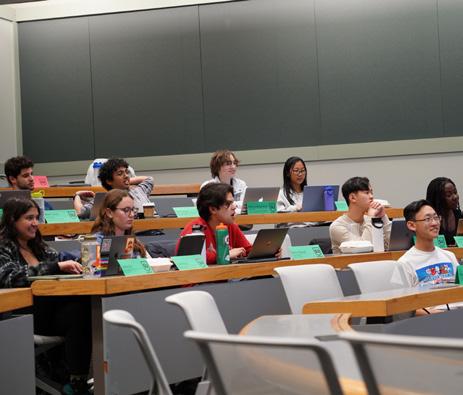
Umrath Lounge where Levitt explained why she wrote her most recent book, “The Objects That Remain.” She described the connections she found between the preservatory work done for objects involved in the Holocaust and objects in custody of the criminal justice system. Levitt also provided a basic understanding of what these objects offer people today and how they should be treated.
“Objects that remain in places like the Holocaust Museum or in police storage and the stories that surround them enable us to do justice,” she said. “Once ordinary objects now enable a form of intimacy and companionship, a different kind of reckoning through holding and telling stories and
sharing them with others.”
Levitt emphasized the importance of caring for objects involved in traumatic and violent experiences by saying they “help us reconstruct lives after trauma and loss.”
She began considering the importance of these items after reading the works of Maggie Nelson, a writer, and Edmund De Waal, a potter and author. Levitt said that Nelson and De Waal’s work had a significant impact on her.
“They were writing in a way that made sense to me,” she said. “I use my reading of [their] works to tell my own story.”
According to Levitt, Nelson’s book Jane: A Murder, a collection of poems written to Nelson’s aunt
who was murdered before she was born, catalyzed this realization; in Nelson’s aunt’s case, multiple objects from the night of the murder were brought to court as evidence.
“I found that shocking and strange, and I had not thought about my own clothes and bedding that were taken by the police as evidence,” she said, regarding her experience with police after she was raped by an intruder into her home.
Although the objects involved in Levitt’s rape were lost, she understood that their existence brought out the importance of caring for objects that remain, whether they are related to trauma or not.
“Only by attending to my own, abiding love for things and the terrible legacy of my own lost
evidence could I begin to appreciate what it meant to have choices to be able to decide what to do with our possessions.”
As she was reading Nelson and De Waal’s work, Levitt found contrasts between the amount of care given to objects by the criminal justice system and those working to preserve Holocaust-related objects. To Levitt, Holocaust preservation work was a “sacred labor.”
“Objects cannot survive without human attention,” she continued. She accompanied these words with pictures of how objects involved in the Holocaust are handled, emphasizing the use of climatecontrolled rooms and gloves. In
SEE LEVITT, PAGE 5
CONTACT BY POST ONE BROOKINGS DRIVE #1039 #320 DANFORTH UNIVERSITY CENTER ST. LOUIS, MO 63130-4899 CONTACT BY EMAIL EDITOR@STUDLIFE.COM NEWS@STUDLIFE.COM CALENDAR@STUDLIFE.COM CONTACT BY PHONE NEWSROOM 314.935.5995 ADVERTISING 314.935.4240 FAX 314.935.5938 The independent newspaper of Washington University in St. Louis since 1878 WWW.STUDLIFE.COM VOLUME 144, NO. 18 THURSDAY, MARCH 9, 2023
UNION
STUDENT
Coverage into funding requests and policy changes.
CONTEST
(News, pg 2) CAPTION
Enter this week’s caption contest!
Sophomore Drake Kindsvater puts points on the board for WashU in the March 4 second-round game against North Park University.
JOEL SWIRNOFF CONTRIBUTING WRITER
LOG OFF Profile on a student advocating against social media. (Scene, pg 3)
Treasury reps discuss Quiz Bowl request for funding gender-separated hotel rooms
ALIANA MEDIRATTA AND ZACH TRABITZ JUNIOR NEWS EDITORS
At a Student Union (SU) Treasury meeting on Feb. 28, Quiz Bowl representatives claimed that Treasury representatives were perpetuating gender inequity by allocating less hotel funding than the group requested, sparking a conversation among representatives about precedent for funding as it relates to gender.
In their appeal, Quiz Bowl requested $800 for four traveling members to stay in a hotel in Boston for two nights in order to compete in a nationals tournament. When Treasury representatives questioned why the group requested $100 per person per night, which is more than typical for hotel funding requests, the two Quiz Bowl representatives present for the meeting explained there were two male and two female students attending, and they wanted to reserve two rooms to separate them based on gender.
SU funds travel expenses by person, without taking gender breakdowns into account, which is the reasoning they used for not providing funding for two separate hotel rooms, as four people can sleep in two beds within one room.
Members of Quiz Bowl present at the meeting argued that only funding
one hotel room would make the sleeping arrangement uncomfortable for the people on its team and further exacerbate the activity’s issues with gender diversity.
“Quiz Bowl is not a very well gender-balanced activity, but in that context, one of the things we’re very proud about in WashU Quiz Bowl is that we have one of the most diverse teams on the circuit,” a Quiz Bowl representative said. “In that context, to not fund this room would essentially be to penalize us for fighting against the overall gender disparities in our competition.”
“If you do not provide us the additional funding, you’re essentially saying that we would have to pay $400 out of our own pockets as a punishment for making our team more welcoming to women,” a Quiz Bowl representative said.
Treasury representative Jason Zhang said he understood Quiz Bowl’s request to provide two separate rooms, but that their case did not justify providing so much funding.
“I understand the desire to make sure that there are two separate rooms,” Zhang said.
“Ultimately, it’s really just the fact that hotels are really expensive.”

Treasury representative Saish Satyal emphasized that the role of the Treasury is to subsidize costs — not
SU Treasury approves appeals for 12 clubs and event with Stephanie Hsu
to always fund every cost entirely.
“I don’t agree with the framing that we’re penalizing the team [for promoting equity] — that’s not how our subsidies work, in my opinion,” Satyal said.
Sophomore Treasury representative Leena Rai expressed in the meeting that she does not believe it is effective to use the concept of gender equity as a tool to get funding.
“It is not a fair precedent to set that you can come into our meetings and wield this idea of gender equity to say that you should be funded [more] than precedent,” Rai said. “I don’t think that should be the attitude in the future, and wielding language like that — I don’t think that is a successful path to get the funding that you want.”
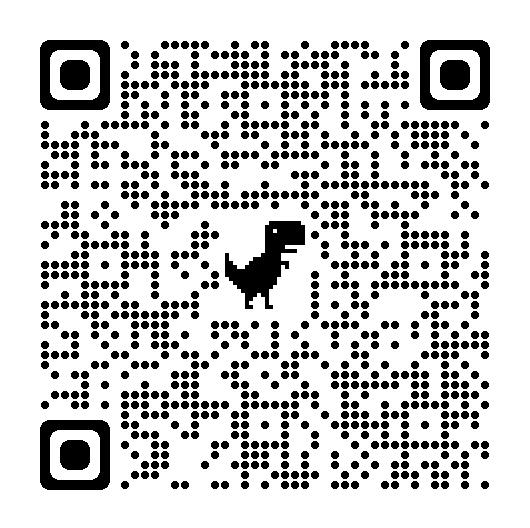
The Treasury procedures for allocating hotel funds have changed since last year when there were specific maximum amounts that groups were allowed to receive for line items such as hotels, gas, rental cars, and flights.
Sophomore Sadie Karp,
The Pope at War: The Secret History of Pius XII, Mussolini, and Hitler

M a rch 27 7:00 - 8:30 PM
Graham Chapel Washington University in St. Louis
Reception immediately following
Public lecture by David Kertzer
Please register at rap.wustl.edu
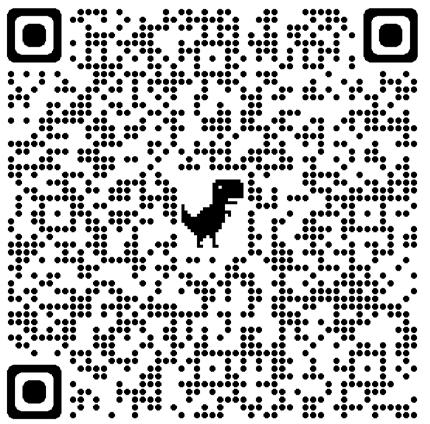

Free and open to all

Sponsors:
ALIANA MEDIRATTA AND ZACH TRABITZ JUNIOR NEWS EDITORS
Student Union (SU) Treasury proposed amendments to their Constitution and to the election packet, and it approved 14 appeals for 12 different clubs, totaling to a sum of $66,720.04, during their longest session so far this semester, March 7.
Proposed Constitution Changes
The meeting began with a presentation from Emily Chen, a member of the Constitutional Task Force, who explained changes that will be voted on by both Senate and Treasury after spring break ends. These changes include codifying the impeachment and recall procedure.
If both bodies approve the changes, the updated Constitution will be on the ballot during the spring election and must be approved by the student body before going into effect.

Election Packet Amendment
Election Commissioner Constantin Carrigan presented an amendment that would ban the five undergraduate colleges from endorsing candidates. The amendment was added to the

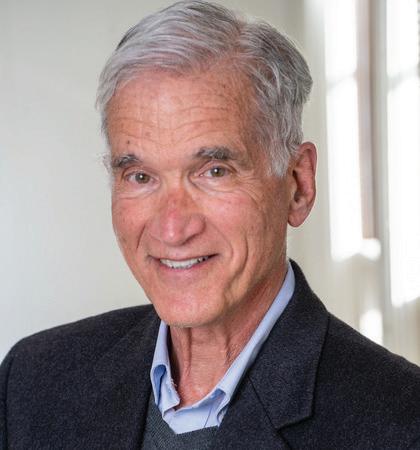
election packet that Senate and Treasury had approved at a joint session on Feb. 28.
The Election Commission decided to alter the language of the endorsement section which previously stated that any group on campus was eligible to endorse a candidate.
Carrigan explained that he did not want SU elections to be influenced by the University and its policies; rather, the election should remain centered around students.
The proposed change would only allow endorsements from groups recognized by SU, constituents, and on-campus organizations governed by constituents. Carrigan noted that the language of the last section was intentionally drafted to include non-SUrecognized groups that do important work on campus, such as Me Too WashU.
Treasury representatives unanimously approved the amendment. Shortly after, SU Senate also voted to approve the amendment, which means it will be implemented in the packet.
Trending Topics:

Stephanie Hsu
Treasury representatives approved a request from The University’s Social Programming Board (SPB) for $45,200 to have actress Stephanie Hsu speak at Graham Chapel on
April 10 as part of SPB’s Trending Topics speaker series. Funds for this request were allocated from a specific reserve of money slated for Trending Topics events, which is separate from the funds reserved for student groups. Previous Trending Topics speakers have included Queer Eye’s Karamo Brown, Encanto’s Stephanie Beatriz, and Olympian Aly Raisman. Stephanie Hsu is best known for playing Joy Wang in the critically acclaimed, genrebending film “Everything Everywhere All at Once.”
The movie has been celebrated for bringing more Asian representation into mainstream media, which SPB members emphasized when explaining why they landed on Hsu as a speaker.
Although Treasury representatives noted that the price tag of the event was high, multiple representatives spoke about the value of bringing Hsu to campus given the recent media buzz surrounding the movie and the importance of including Asian and female representation.
Senate Update: Constitution, election packet amendments and committee updates
NINA GIRALDO JAMES ELLINGHAUS SENIOR NEWS EDITORS
Student Union (SU) Senate discussed constitutional and election packet changes, gave committee updates, and brainstormed ways to improve the SU Annual Survey that shapes the goals of Senate for the upcoming year in their meeting, March 7. There were 17 Senators present at the meeting, three of whom were newly appointed.
Changes to the SU Constitution and Election Packet
The Constitutional Task Force made several changes to the SU Constitution, and SU Executive Vice President Emily Chen went over the changes in each section.
Most notably, the task force revised Section 2 of Article V, which details the powers and duties of the SU President. Under the task force’s new decree, the President can send information to the entire University student body on behalf of SU without the consent of other representatives.
The President can also now remove class council presidents and make appointments with the consent of executive officers, rather than with the consent of Senate and Treasury.
A few senators voiced concern over the suggested change to increase
presidential power. Senator Bela Stampes-Blackburn, a sophomore, asked why it was necessary for the President to speak on behalf of all of SU.
“Why can’t it just be ‘as the President of Student Union’?” she asked, regarding emails from the President.
Chen clarified that the new presidential power is intended for instances where there is a controversial issue that SU needs to address and representatives cannot agree on a statement.
“Functionally, this [constitutional change] gives the President more power,” Chen said.
Another significant change to the SU Constitution was to Section 4 of Article VI, which describes the rules of enactment and approval for decisions made by SU bodies. The task force changed the section to allow all legislative decisions, specifically for Treasury appeals, to go into effect immediately after voting, as opposed to three days after the decision is made.

After the Constitutional Task Force finished talking about the changes to the Constitution, Election Commissioner Constantin Carrigan discussed the amendment to the SU 2023 Election Packet.
The amendment states that endorsements from Washington University entities are not permissible.
Carrigan said that the amendment prevents administrators from
endorsing candidates, which he argued can result in unfair elections.
Senators voted unanimously to accept the changes made to the Election Packet.
Committee Updates
Committee project updates included presentations from the Academic Affairs, Health and Wellness, Diversity and Inclusion, and Campus and Residential Experience committees.

The Academic Affairs committee is working on increasing Arts and Sciences access to study areas on campus. Despite the College of Arts and Sciences having more than five times the number of students, the Olin School of Business has more study spaces available. The committee hopes to finish the report for this space equity project by March 24.
The Academic Affairs committee is also trying to push back add/drop deadlines for classes by five weeks. Members are creating a presentation that will be shown to the Washington University administration.
The Health and Wellness Committee presented two ongoing projects.
Working alongside Embody, the eating disorder, awareness, and prevention group on campus, the committee hopes to collaborate with Washington University Student Associates to
NINA GIRALDO, JAMES ELLINGHAUS, AVI HOLZMAN | SENIOR NEWS EDITORS | NEWS@STUDLIFE.COM 2 STUDENT LIFE THURSDAY, MAR 9, 2023
DIVISION OF MISSION AND IDENTITY
NEWS
SEE SENATE, PAGE 5 Read the rest online: Read the rest online:
JENNY RONG STAFF WRITER
“I got my first social media account in 6th grade,” sophomore Emma Lembke, the founder of LOG OFF Movement, said. “No one warned me that [social media] are amplification tools that don’t work to prioritize children’s wellbeing and stability.”
Lembke testified before the U.S. Senate Judiciary Committee on Feb. 14 on the harms of social media to children. As the founder of the LOG OFF Movement, Lembke aims to tackle the complexity of social media and help parents and kids navigate through the inner workings of these apps.
Lembke originally began this project during a digital advocacy program in the summer of 2020 when she realized the negative impact social media has had on her. From constant exposure to unrealistic body standards and quantified followers, Lembke noticed her mindset starting to change for the worse.

“Why do these companies have so much control over me? Why was it that I kept going back?” she said. As Lembke reflected, she started to notice trends in algorithms on social media.
While establishing LOG OFF, Lembke further explored her own complicated relationship




with social media. One example Lembke recalled was that after looking up healthy recipes online, she would see advertisements on social media for workout training and appetizer suppressants. The perfect hourglass bodies in the ads led her to conclude that her body was not enough.
“To this day, it is still the most harmful experience I’ve had [on social media],”
Lembke said. The content locked her into a negative mental state, and disordered thoughts and unattainable body standards haunted her.
Lembke found that much of the research relating social media to mental health had no experimental groups of teenagers and young adults, whose world views and values are the most affected by social media. LOG OFF enabled a safe space for the youth to express their experiences with social media and allows them to take initiative and start conversations.
“We can never go back to a time when social media doesn’t exist. [What] we can do is move from parasitic relationships [with social media] into mutualistic ones,” Lembke said.
Lembke said the name “LOG OFF” means to “mentally log off with our parasitic relationship with tech” and create better norms in terms of its usage. “It’s fun because it plays [on] the extremist nature of social
media,” she said.
These days, LOG OFF is transiting toward a leadership council with over 60 youth advocates from 13 countries, creating online communities with a diverse level of engagement. Lembke is deeply involved with turning their voices into policy changes. She hopes that the movement can “infiltrate media sources and that members can become empowered agents of change.”
Lembke took her next step towards widespread change when she testified before the U.S. Senate last month. She describes the experience as “one of the most cathartic and memorable moments of my life. You could sense a shift in the room towards action, not just talking.”
Even though the legislation process can be tedious and slow, Lembke thinks that the complicated process creates a product that is thoroughly thought out and fought over. The Senate showed her how effective legislative action can be, and as a member of Gen Z, Lembke wants to continue to fight for a voice at the table.
Now, Lembke is focused on creating chapters of LOG OFF at different college campuses, starting with WashU.
“We have so many great minds and at WashU, I’m open to building and finding the right team,” she said.
WU Turkish community reckons with natural disaster back home
AVI HOLZMAN SENIOR NEWS EDITOR
At 6 p.m. on a Tuesday night, the Village House was filled with familiar sounds. Cashiers chatted with students, the TV was playing some obscure sports game, the sizzle of the deep fryer making the (probably) hundredth half and half.
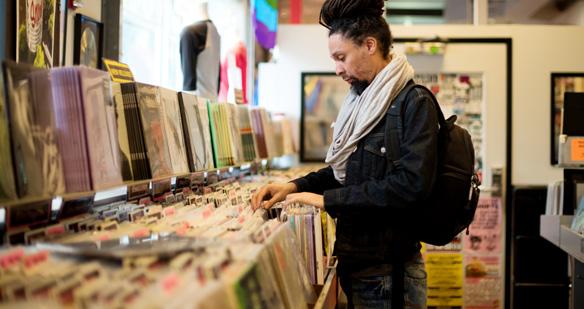
At the end of the last table furthest from the kitchen, six students were seated, speaking what they call Tring-lish, a combination of Turkish and English. They seemed relaxed, some leaning back in their chairs and others smiling and cracking jokes. Save for the Tring-lish and you wouldn’t have known that these students were all from TASA (Turkish-American Students Association), a club started at the beginning of this semester as an affinity group where Turkish students, or those interested in learning more
about Turkish culture, could connect. The club initially met every other week just to catch up and plan events, but for these students, that would soon change.
On Feb. 6 just after 4 a.m., the ground in Gaziantep province in southeastern Turkey began to move. The first of two massive earthquakes stunned the region: homes, businesses, and livelihoods completely collapsed. According to the Turkish Interior minister, as of March 4, 45,968 people have died.
Most people who spoke to Student Life believe the real number of deaths is much higher than what is being officially reported by the Turkish government.

Turkey is situated between Europe and the Middle East. It is a country familiar with experiencing seismic activity. Since 2000, there have been roughly 20 earthquakes in the country, and since the first quake in
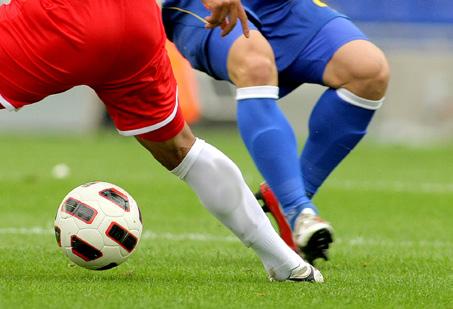
February that measured 7.8 on the Richter scale, there have already been three earthquakes in other regions of the country.
Members of TASA reacted immediately when the topic of the earthquake came up. Smiles turned to expressions of sadness. A sudden somberness swept over the table. It became clear that this was a group of people going through an emotional experience, both suffering and grieving.
First-year Vahdet Karatas, described scrolling on social media after the quake and seeing, “videos of dead people being taken out,” from the rubble.
Despite the added emotional burden from this event, members of TASA who were interviewed did not take time away from school. But they weren’t entirely present, either.
SEE EARTHQUAKE
PAGE 4
ALICE GOTTESMAN, ANNABEL SHEN, VIA POOLOS | SENIOR SCENE EDITORS | SCENE@STUDLIFE.COM STUDENT LIFE 3 THURSDAY, MAR 9, 2023 Copyright © 2023 Washington University Student Media, Inc. (WUSMI). Student Life is a financially and editorially independent, student-run newspaper serving the Washington University community. Our newspaper is a publication of WUSMI and does not necessarily represent the views of the Washington University administration. VOLUME 144, NO. 18 Julia Robbins Editor-in-Chief editor@studlife.com Via Poolos Managing Senior Scene Editor scene@studlife.com Jamila Dawkins Reilly Brady Managing Senior Forum Editors forum@studlife.com Clara Richards Managing Senior Sports Editor sports@studlife.com Ved Patel Managing Chief of Copy copy@studlife.com Holden Hindes Managing Photo Editor photo@studlife.com Kellen Wang Head of Design design@studlife.com Tuesday Hadden Head of Illustration James Ellinghaus Nina Giraldo Avi Holzman Senior News Editors Annabel Shen Alice Gottesman Senior Scene Editors Gracie Hime Cathay Poulsen Chiefs of Copy Elle Su Zoe Oppenheimer Senior Photo Editors Kamala Madireddi Jared Adelman Senior Multimedia Editors multimedia@studlife.com Sydney Tran Junior Design Editor Jasmine Stone Junior Forum Editor Jamie Nicholson Junior Photo Editor Zara Shariff William Labrador Junior Scene Editors Lily Taylor Zach Trabitz Aliana Mediratta Junior News Editors Brooklyn Hollander Mia Burkholder Samantha Elegant Copy Editors Camden Maggard Social Media Editor Tim Mellman Newsletter Editor Tony Tong Senior Web Editor Paige Steuber Senior Web Designer Adrienne Levin Coleman General Manager a.coleman@studlife.com Sarah Huff Advertising Sales Manager huffs@studlife.com WashU Students! Do more riding in free-style. Ride Metro Transit FREE when you order your FREE U-Pass right here right now. SCAN HERE TO REQUEST YOUR FREE PASS. RIDE ON to freedom... and free rides @stlmetro SCENE WU student wants you to log off (or at least take a step back) MORGAN FOWLER | STUDENT LIFE Sophomore Emma Lembke founded the Log Off movement, which encourages teens and young adults to take a critical look at social media.
EARTHQUAKE from page 3
“I attended classes, [but] I was just physically there for the first few weeks, I really wasn’t emotionally or mentally there,” Vahdet said.
For this small group of students, the earthquake felt simultaneously personal and distant, a force that disrupted their entire lives while living halfway across the world from the impacted area.
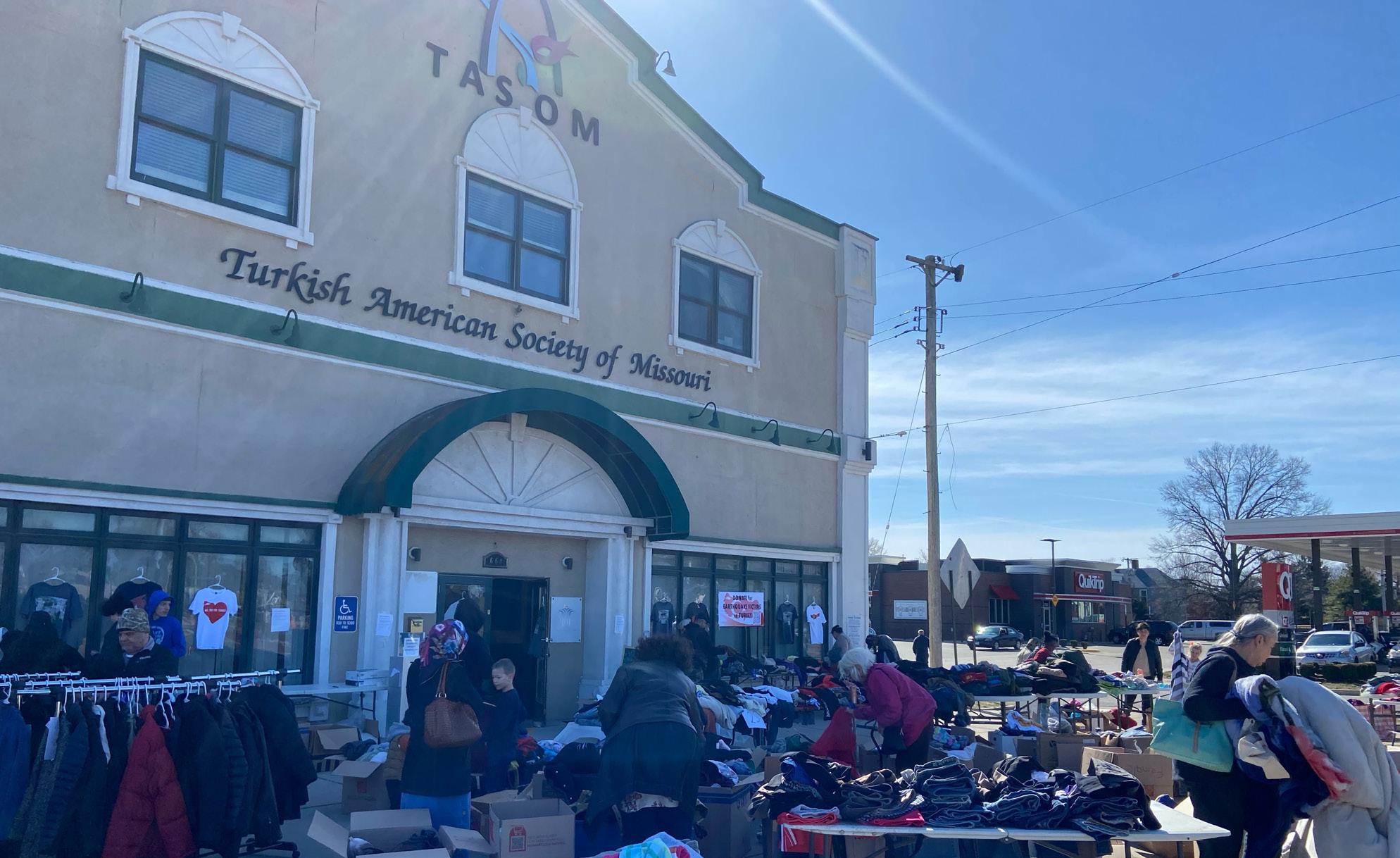
Junior Tugce Iyiyol described how before the earthquake, TASA members met every other week to reconnect with each other, speak their native language, and be surrounded by other students who come from similar cultures.
“Just seeing each other gives you a motivation boost because we all know we are trying to build a life here,” Iyiyol said.
Starting on Feb. 6, the club began meeting daily to process the news coming out of their country.
Iyiyol emphasized that even though her family has not been directly impacted by this quake, she still feels the ramifications of the event and urges people to view it as a humanitarian crisis. In 2010 during the Fukushima disaster, she remembers her “family saying hey, ‘this is not just [about] Japanese people.’” Iyiyol’s family instilled in her that when natural disasters happen, all people need to come together and provide support.
Since the quake occurred, TASA has become more connected with other college Turkish student associations around the country through social media. Iyiyol opened a Whatsapp group chat with over 30 contacts, each from a different college or university. This movement to provide aid has become something that students from around the country are involved in.
Iyiyol also pulled up a spreadsheet that the TASA’s created to keep track of
donations and money raised for Turkey. These groups are trying to “cooperate together across the United States,” she said, to raise awareness about this issue. TASA has worked with the Turkish American Society of Missouri and held multiple clothing drives where people can drop off clothes to donate to either be sent straight to Turkey or sold to raise money for donations.
TASA also discussed mirroring a fundraising event that the Stanford Turkish Association did where they asked a local Dunkin Donuts if it would donate some donuts to the group so that they could be sold to raise money.
Additionally, they are considering renting out a table in the DUC to sell traditional Turkish desserts and raise awareness about the earthquake. For these students, every little donation matters — every coat, dollar, and donut matters and has significance — and they are not done holding events just yet.
Iyiyol said that on March 18, the club plans on collaborating with TASOM to have another clothing drive and collect donations.
TASA is doing its best to make the most out of the situation its country is in, and it is committed to helping others who are suffering. When asking that same group what it thought of the WashU’s response to the quake, Vahdet said it was, “Pretty sad, to be honest.”
“It was disappointing not hearing from WashU,” senior and TASA member, Rana Karatas, said
First-year Refik Celik said that the only class that talked about the earthquake was his natural disasters course.
“[I] still hear[s] stories of people coming out from under the rubble. Somehow they have food or water next to them. So the more help we can provide the better,” Celik
said.
First-year Orhan Erdo an said the people on his floor who knew he was Turkish reached out to him after the quake. He also said that his RA (Resident Advisor) reached out just eight hours after the earthquake and messaged him personally, asking if any of his family had been affected. For Erdo an it felt “comforting” when his floormates and RA messaged him. At the same time, “four out of my five professors didn’t mention anything,” he said.
Associate Professor of Middle Eastern History, Hayrettin Yücesoy, said that he wanted to hear more from the University.
“[I have] not seen a proactive response from the upper administration, [and] one would like to have that kind of solidarity and support to alleviate the emotional toll on our students and faculty from the region,” he said.
At the same time Yücesoy, “understand[s], if [WashU releases a statement] once after a disaster it will have
to do so with all applicable cases.”
TASA emailed multiple administrators asking them to make a statement so that students would be aware of their fundraising efforts. At the time of writing, the University has not put out a public response about the earthquake.
Many believe that this earthquake could have resulted in far fewer deaths, had appropriate precautions been taken. Yücesoy also expressed his immense frustration at the Turkish government. According to Yücesoy, the Turkish national guard was prohibited from entering the impacted area for more than 24 hours.
As Yücesoy spoke about the earthquake and the inadequate governmental responses, he would lean forward and raise his eyebrows when trying to emphasize a specific point. He began by emphasizing how Turkey could have been more prepared to deal with this earthquake, and how
the country failed to rise to the occasion when disaster ultimately struck.
“One of the areas of neglect that created this kind of disaster, and another disaster 20 years ago, and another disaster about 70 years ago, was basically [due to] the lack of enough attention to urban planning and earthquake fault lines,” Yücesoy said.
Yücesoy added that the government is not enforcing building codes. He explained that Turkish contractors work in an entirely free market economy, where everyone is trying to minimize cost in whatever way possible, including cutting corners when it comes to building safety codes.
Since the government actively participates in this economy, as one of the largest contractors in the country, this problem has only gotten worse. Even as the country is reeling from the physical and emotional aftershocks of the quake, new buildings are being constructed without building code enforcement
from the government.
Karatas read online about how the government was “not abiding by building codes,” and how “terrible government management of the earthquake [has resulted in] 40 or 50,000 deaths, [which] could have been ten thousand or maybe less,” he said.
TASA’s mission has undoubtedly changed since the club’s inception, but members remain steadfast and committed to helping others. Karatas feels both hopeful and pessimistic about the group’s current position.
“There isn’t much that we can do, because we are in America,” Karatas said.
However, he remains hopeful and urges others to “raise awareness, or go send money” because for him, every little bit counts in this disaster.
“Even if it is one dollar, [donate] because one dollar or five dollars is a lot in Turkey,” Karatas said.
Crowded cubicle concerts: Non-Euclidean Geometry
Washington University is lucky to host one of the top-ranked mathematicalsystem-contrarian bands, Non-Euclidean Geometry — and Student Life was even more fortunate to get to talk to them about their music. The band is composed of juniors Spencer Kates, Henry Windish, Gabe Hamburg, and Maeve McFadden on vocals, guitar, bass, and saxophone, respectively. Their sole sophomore Evan Quigley is on drums. The band holds down the indie rock scene not only on campus, but also in the larger St. Louis community.
Student Life: How did you all come to be a band? How did you guys meet?
Spencer Kates: Some of us met at a jam sesh fall of 2021 through Performing Musicians Resources Group, but Gabe was acquired later on. I did a KWUR week freshman year by myself that wasn’t good, but they invited me to a house show later on, and I decided to get a band together. I got Evan and Henry for that, but we needed a bassist, so we picked up Gabe. January of this past year, we were writing a song that had saxophone in it, so we asked Maeve to play with us, and we didn’t let her leave.
SL: How would you describe the type of music you play, and what musicians are you inspired by?
SK: I write a lot of my music based on my personal inspirations, and then the rest of the band listens to other stuff and brings it to our music, so it really impacts what our sound is. I love how it’s just an amalgamation of different genres and influences, but at the end of the day, it’s still just indie rock.
Maeve McFadden:
Spencer shared Wendy Wander with me. Their vibes are very similar to the music that we play.
SK: Puma Blue, King Krule, Steely Dan.
Evan Quigley: It’s like that one song that Drake did with Deftones. I can’t remember what it is called, but it’s been really influential, and I’ve grown as a musician because of it.
Gabe Hamburg: I listen to a lot of Voltech, which isn’t like the music we make, but it informs my playing.
MM: Yeah that’s how I
feel about my music interest too. A lot of jazz influences how I play sax lines.
Henry Windish: I feel like a lot of the guitar forward indie bands like Dinosaur Junior, Peach Pit, or Built to Spill influence my playing, and I try to emulate them.
SL: How has WashU influenced or supported your band?
HW: Through WashU, we were lucky enough this past year to get set up with some shows outside
the WashU community, reaching a broader audience. It’s been a fun change of pace playing for the general St. Louis music scene. Also, me and Spencer were in a songwriting class together which was a great opportunity to bounce ideas off of each other in a more formalized setting.
SK: Also our gear. Nearly all of it is owned by WashU. Performing Musicians Resource Group has been a huge help for us and other musicians so we don’t have to spend thousands of dollars on
gear. We wouldn’t be able to play shows if we didn’t have the drum kit they provided.
SL: What is your favorite song in general or song to perform? Are they different songs?
EQ: I like “Text Me Back” a lot. It’s the one we do the most with.
SL: I can definitely tell that’s a favorite. I recently went to [your] new album concert and could easily feel the great energy between the band members. You guys really seem to be having fun with each other, which is super important [for] creating a good crowd and boosting general concert morale.
MM: Yeah, we worked really hard on this album, and we are glad it’s finally out for people to enjoy. As much as it’s for the public, it’s also nice to see our hard work culminate into a more official and cohesive product.
Although the band is losing Kates because of a study abroad, they are eager to experiment with an altered version of the group. Check out the band’s music on Apple Music, Spotify, Soundcloud, and Bandcamp. Also, listen to their new album “Into the Midnight” on all streaming platforms. For more information and access to their Linktree, check out their Instagram page @noneuclideangeometry.
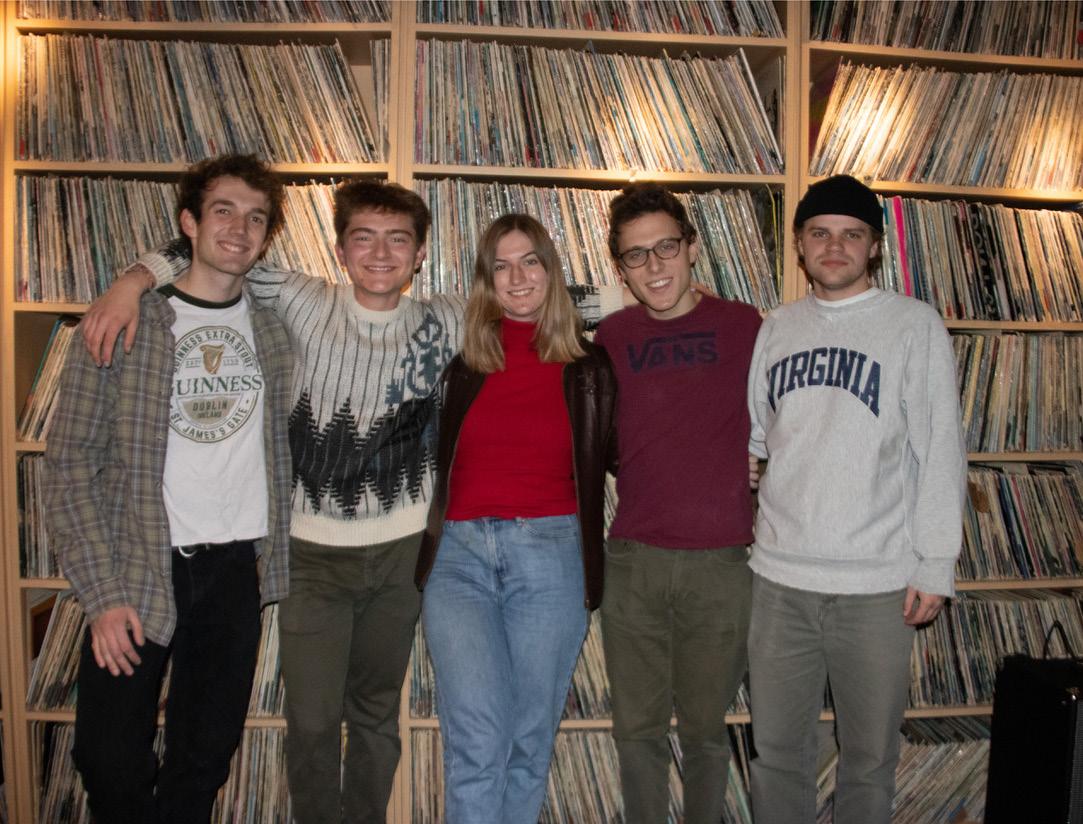
ALICE GOTTESMAN, ANNABEL SHEN, VIA POOLOS | SENIOR SCENE EDITORS | SCENE@STUDLIFE.COM 4 STUDENT LIFE THURSDAY, MAR 9, 2023
COURTESY OF TASA
The WashU Turkish-American Students Association (TASA) helped with a fundraiser for people in Turkey impacted by the earthquake.
GRACE HIME CHIEF OF COPY
COURTESY OF NON-EUCLIDEAN GEOMETRY
From left to right: Evan Quigley, Spencer Kates, Maeve McFadden, Gabe Hamburg, Henry Windish
conversations about the investigation and genderaffirming health care more generally.
“The opinions of one person should not supersede the collective experience of research, clinicians, and families themselves,” Goldbach said. Their article also addressed the topic of detransitioning that Reed brought up in her piece. Goldbach and Dunlap cited a study in their piece by the American Society for Plastic Surgeons that found that “less than 1% of transmasculine patients and only 1% of transfeminine patients report feeling regret after gender affirmation surgery.”
Goldbach believes “that it is important that there be a fair and balanced discussion about trans-youth care.” He said he “was concerned that the author of the original opinion piece was speaking exclusively from their personal experience as a caseworker, and leaving out the critical perspectives of researchers, clinicians, transyouth, and their parents.”
“Perhaps the most concerning statement” in Reed’s article, Goldbach and Dunlap wrote, is Reed’s claim that “‘there are no reliable studies showing’ that if left untreated, gender dysphoria has consequences including self-harm and suicide.” They referenced studies which “show that access to affirming care reduces behavioral health problems among transgender youth.”
Goldbach said he wants the article to help provide scientific evidence to the conversation surrounding Reed’s piece.
“My concern is that people may not be taking the extra step, and just saying this is how I feel, but not thinking about what the actual science
is saying,” he said. “People are not exploring this beyond their gut reaction.”
In an interview with Student Life, Dunlap questioned Reed’s qualifications to make the claims she wrote in her piece.
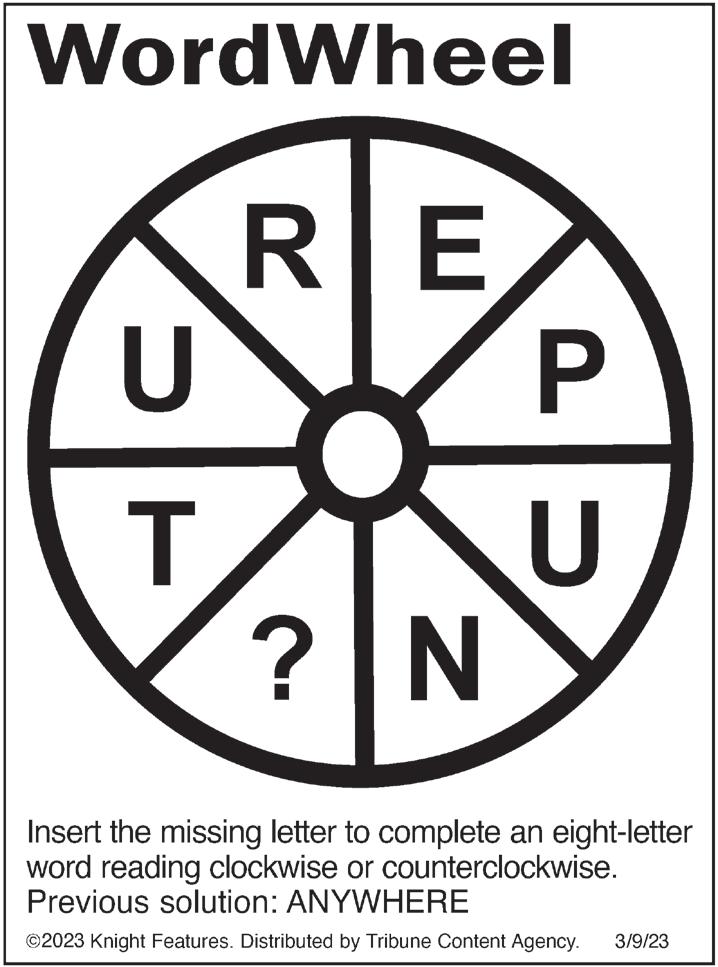
“There was a lot of speaking of confidential conversations that a case manager, or even me, a social worker, wouldn’t be privy to,” she said.
Dunlap and Goldbach questioned Reed’s qualifications more at length in their article. They wrote that Reed’s background doing “intake work” does not give her the training or expertise to comment on the clinical decisions made by medical doctors, nurses, psychologists, social workers, and others with years of formal clinical training in transgender adolescent health.
The researchers’ article and interviews also emphasize that gender-affirming care is necessary even if it alone does not completely alleviate the mental health struggles of trangender and nonbinary individuals.
“We cannot expect genderaffirming care to be the silver bullet where it is magically going to make everything 100 percent better,” Dunlap said. “A lot of these youth still live in communities with stigma, discrimination, and hate, gender-affirming care does not treat stigma, transphobia, hate, or discrimination.”
Goldbach added that a few negative experiences at a medical office do not necessarily indicate a problem with its processes.
“In a clinic of this size with any specialty, it is not hard to find an email from an unhappy person or two,” Goldbach said. “That to me does not suggest that there is a systemic problem at the clinic.”
PUZZLE Mania
Both researchers also said that discussing the Center and gender-affirming care based on the views of only one individual leaves out the key perspectives of transgender people.
“That article did not bring in the perspective of transgender youth and their families,” Dunlap said. “They became invisible in that article. The only thing that was visible was the lived experience of one person.”
Dunlap also responded to Reed’s claim that seeking out gender-affirming care became a kind of “social contagion” for some young people.
“Yes, we are seeing more visibility of trans and nonbinary youth and young people, but that is a good thing because prior to the internet, a lot of families did not have representation in their own communities,” she said. “This is the first time that they have found someone who speaks to their own experience, and had that access to those people who can speak to their own experience.”
In addition to addressing the overall value of genderaffirming care, Goldbach directly addressed WashU and its handling of the ongoing investigation.
“I hope that the University will be slow and intentional about their internal investigation,” he said. “I want to make sure that we are not overly reactive or jumping to conclusions.”
Dunlap also spoke to what she hopes to see for the future of gender-affirming care.
“I want to see parents and youth being represented,” she said. “I want to see the research about genderaffirming care being represented. I do not want to see clinics closing because of a few powerful voices that are shining through.”
SENATE from page 2
address eating disorder awareness and training as a part of Bear Beginnings.
Additionally, the committee plans to connect with external eating disorder treatment centers and reach out to the University Medical Campus to better facilitate conversations surrounding eating disorder awareness and prevention.
The committee is also looking to implement safe sex vending machines on campus that provide condoms, pregnancy tests, Plan B, and vibrators, to provide cheaper and more accessible resources to students.
“Particularly in the wake of Roe v. Wade being overturned, access to safer sex supplies and contraception is more important than ever,” Senator Lauren Fulghum, a
sophomore, said.
Senate's Diversity and Inclusion committee presented on making Election Day a paid holiday for University faculty and staff, in addition to enforcing campus-wide class cancellations on the day. The committee plans to organize a formal proposal to present at the Vice Faculty Dean’s meeting on April 5.
Additionally, the committee hopes to reform Bear Beginnings by cementing an annual Black convocation, hosting financial aid awareness sessions, and implementing a voter registration module for students.
The Campus and Residential Experience Committee explained their recent discussions with library administration regarding study spaces
LEVITT from page 1
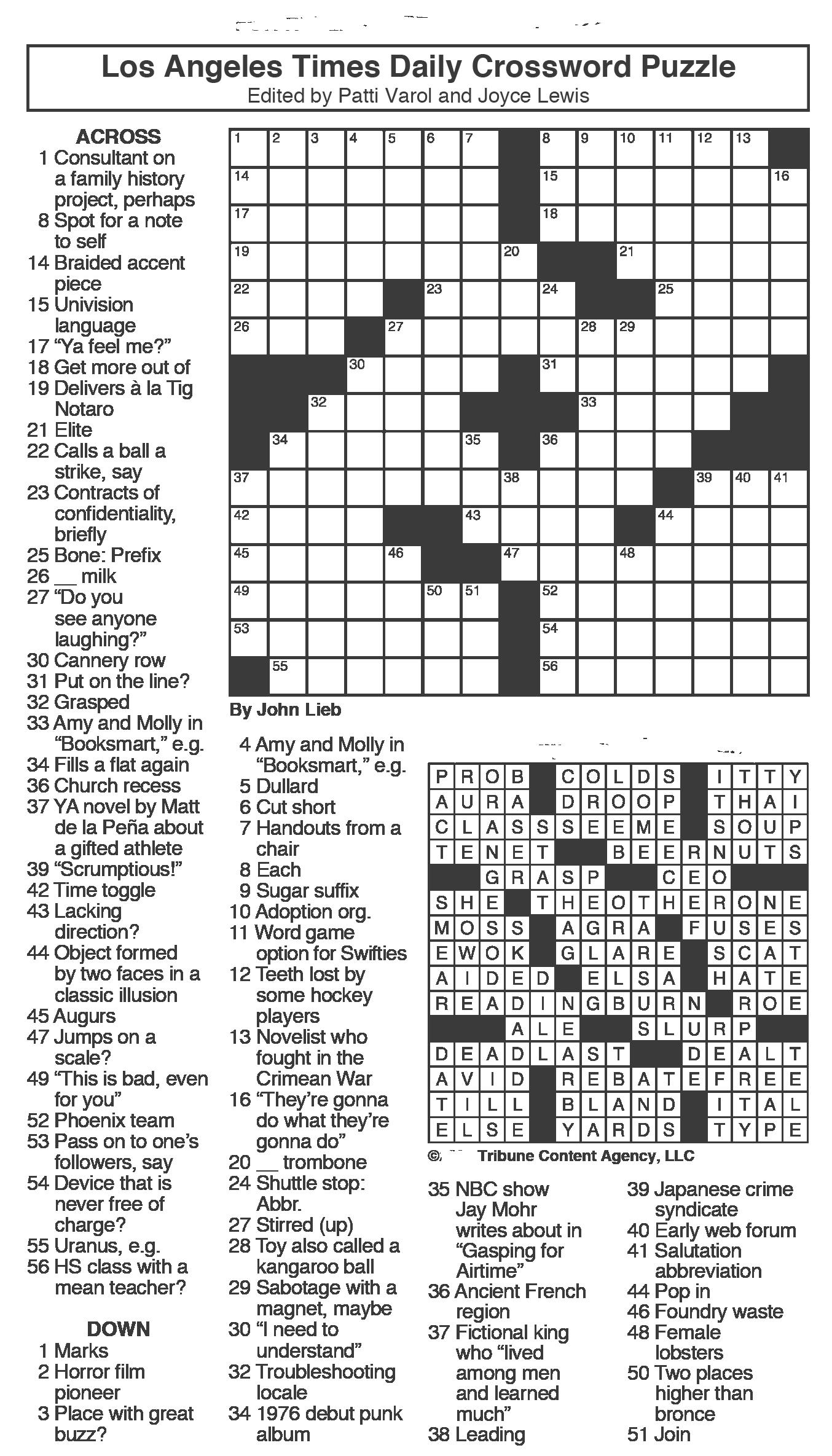
contrast, she criticized how the juridical system views objects involved in crimes.
“The law cares about the chain of custody or provenance of criminal evidence, but treat such objects as if, once in custody, the work of holding them is done,” she said.
In writing her book, Levitt took a class alongside police officers to get a better understanding of the treatment of objects involved in violent crimes. She said her experience there cemented her critical view of police practices in comparison to work on Holocaust objects.

“Although seemingly similar practices are at work in the criminal justice system, these are quite different operations,” she said. “This is a decentralized set of operations in the United States… there are no
standards.”
Maxwell Greenberg, a postdoctoral fellow at Washington University in Jewish Studies, shared Levitt's concern.
“The care that goes into [preservation] work is wonderful, though care over Holocaust-related objects really is the exception,” Greenberg said to Student Life after the event. “The US should fund similar work that is done in museums like the Holocaust Museum for its own genocides,” he added.
WashU librarian AJ Robinson recognized Levitt’s work as offering critical lessons for their own.
“As curators, we lose track of the impacts of decisions made about curating. Emotion gets lost,” they said. “Levitt did a wonderful job explaining the importance of telling the stories of the


and hours. In addition to requesting that libraries open earlier and close later, the committee mentioned asking the library administration for more group study spaces.
Finally, the committee discussed a recent meeting with Washington University Police Department (WUPD) regarding Bear Patrol, a University program that provides walking and golf cart escorts to students during late night hours.
“[WUPD] came to us expressing concerns because they weren’t getting a lot of students to take on those jobs, and they wanted us to help guide them in ways to get in touch with more students and grow the program overall,” Senator Emma Hammerschmidt, a sophomore, said. “So we are currently working with them on that.”
objects we display.”
Towards the end of her lecture, Levitt mentioned the importance of seeking out and discussing these types of items.
“Such vital artifacts animate these legacies and in so doing, they enable us to share their stories,” she said. “This kind of sharing is, I believe, an alternative form of doing justice, a partial answer to the loneliness of life after such violation.”
Levitt ended by pointing out to the audience their potential role in preservation work. “If an artist, a poet, a scholar, a student, goes to the museum and the museum collection is open, you can have access to those things and be a part of the telling of those stories.”
SPONSORED BY:
GOTTESMAN, ANNABEL SHEN, VIA POOLOS | SENIOR SCENE EDITORS | SCENE@STUDLIFE.COM STUDENT LIFE 5 THURSDAY, MAR 9, 2023
ALICE
WUTC
1
from page
FORUM
It’s time to revive (or recreate) WashU campus traditions
If you were to ask Washington University students what campus-wide traditions exist here, you’d find slim pickings. Some might describe traditions they personally have not experienced but have heard of from upperclassmen or alumni, like Art Prom, or traditions they’ve seen in altered forms, such as WILD, Moonlight Breakfast, or Convocation.
The truth is, COVID19 has killed many of the traditions that made WashU stand apart, but that doesn’t mean we can’t revive them or make some new ones of our own. Be it individual students deciding to start something wacky — like Mizzou students running across the quad as first years for ice cream and then again at
the end of senior year for a free beer — or leaders in student government and Campus Life coming up with more campus activities, WashU needs more campus traditions. As our peers in Positive Psychology would tell us, it is psychologically important to have events to anticipate and to look back upon fondly. And while WILD is nice, a tradition doesn’t necessitate pouring tens of thousands of dollars into a full-blown performance. We’re encouraging students to start leaning into their zany ideas and create a campus tradition — consider it your chance to be remembered after you graduate. We’re also urging campus leaders to recognize their role in creating accessible, low-cost experiences for students who
want to have exciting things to look forward to during their time as students and memorable experiences to look back on as alumni. To get you started, here’s a sample of activities our Editorial Board would love to see on campus next year. Hope to see you all rolling down Art Hill on the second Tuesday of April!
Bring back The Rat
Nope, not the furry rodents that you might mistake for a squirrel scurrying through the sewer grate on your walk to class. The Rat was a popular bar and grill on campus that Student Life reported often had a nightly attendance of over 800. It hosted themed parties, televised sporting events, and, perhaps most essentially, contained a campus bar. It created a
social space for students to imbibe without the extra cost of transportation to Tower Grove to go to Tikki’s or a long metro ride to get to Molly’s in Soulard.
The DUC has picked up a bit of the slack, hosting sports watch parties and other social events in the Fun Room, but it hasn’t taken on the same attendance numbers, and it doesn’t have the food and beverage options that the Rat was reported to have in its prime. WashU needs more accessible social drinking spaces outside of Fraternity Row. The Rat was open for 26 glorious years; it’s time to bring it back.
— Clara Richards, Managing Sports Editor

You get a prom, you
get a prom — everyone gets a prom
Throughout my four years, I’ve heard whispers of a certain forgotten tradition: Art Prom. Art Prom was an enviable affair — reportedly, $10 for transportation to the venue, an open bar, a DJ, and an opportunity to step out in your most unhinged 80s-inspired ensemble. I’ve even heard rumors of actually good music playing at Art Prom. (As a girl whose first (and last) WashU frat party unironically played “Stacey’s Mom has Got it Going On,” this report only rubs salt in the wound.)
Now, as an Arts & Sciences student, I have no personal stake in whether or not Art Prom gets revived (sorry, Sam Fox folks). As an enjoyer of any opportunity to


be overdressed, though, I’ll take this time to advocate for more formals. Why not throw an Arts & Sciences prom? A B-school bash? We could even get major-specific; I just know English majors would get down. — Jamila Dawkins, Managing Forum Editor Grade Wars WashU has many positive traits, but school spirit is not always one of them. The varsity men’s basketball
Sympathy for the devil: Amala Ekpunobi and the free speech dilemma
For better or, frankly, for worse, our political discourse is like a field of weeds: the same debates and controversies bloom and recede with every season, and new fads take root or are outcompeted by the impenetrable thicket of new debates as we hack and slash our way through tired talking points. Such a crowded ecosystem leaves little opportunity for an issue to remain in the public eye for long before it is supplanted by another species of controversy, so it is noteworthy when one does survive. In particular, I have always been interested in that perennial flytrap of writers, “concerned intellectuals,” and pundits: the campus freespeech debate. Recent events have once again brought this issue into sharp relief. Amala Ekpunobi’s arrival on campus last fall stirred the expected fights over “civil discourse” that so recently filled the pages of this newspaper. Then, in late February, the Division of Student Affairs announced
the creation of a course called “Dialogue Across Difference” that is dedicated to fostering “open dialogue.”


The donor funding the new course extolled the virtues of campus free speech and lamented that “The concept of ‘cancelling’ someone because of their opinions and viewpoints is anathema to the fundamental purposes of higher education and human advancement.” It is yet another clash between the ideals of the free marketplace of ideas and the enforcement of safe spaces.

Basically, it’s nothing we haven’t seen before.
On the face of it, Ekpunobi appears to be yet another in a long line of conservative influencers spouting talking points — talking points which others have rightfully criticized as blatantly incorrect. But if Ekpunobi is now an adherent of conservative talking points, it is only because she was once an adherent of leftist talking points. As Ekpunobi tells it, she followed in the footsteps of her activist mother, joining her mother’s group as an organizer. Spending so much
time around fellow left-wing advocates, however, exposed her to what she describes as rampant, casual anti-white racism. The event pushed her to think more critically about the positions she inherited from her mother and eventually turned her into an acolyte of Thomas Sowell, a defender of the free market, an opponent of wokeness, a veritable Saint Paul — in other words, a “free thinker.”
From this perspective, we might easily conclude that this is an example of triumph over leftist indoctrination. But how, exactly, was Ekpunobi indoctrinated in the first place? Presumably, she was not threatened by her parents or peers — simply put, she just had never given the ideas much thought. We are left, then, with the oxymoronic possibility that her former earnest belief in left-leaning values did not imply genuine contemplation — that an idea can make others believe it even if they have not really thought about it. As benign as this concept seems, it holds serious consequences for our endless debate about free speech. Perhaps
Ekpunobi would dismiss it as another example of leftist indoctrination. I prefer the term coined by former Vice writer and commentator Sam Kriss: this is an example of a “demon.”
Kriss begins his review of Dostoevsky’s “Demons” with, well, a history of demons. Not the traditional Christian demon, a figure of winged, fiery fury, but rather the demon of the Torah. In the Jewish tradition, these demons are not terrifying monsters, but a silent, invasive species of the mind that “[changes] the way you act, or the way you look, or the way you speak. A demon possesses you: it speaks its own words out of your mouth.”
Dostoevsky’s book tells the story of a murder plot by a group of Marxist revolutionaries scheming during the twilight of the Russian Empire. Dostoevsky was a staunch conservative and no doubt would have denounced the socialists as demons had they really existed. But Kriss suggests a far subtler demonology. Each revolutionary, Kriss points out, declares their
loyal commitment to the revolution in flowery, grandiose manifestos and monologues, and yet each and every one is revealed to privately contradict socialist thought. For example, Varvara, one of the plot’s supporters, proclaims that only “inveterate old men” ignore the popularity of socialist ideas. Varvara, ironically, is herself a wealthy landowner, the exact enemy of the socialist cause. Is it accurate to call them pretenders and hypocrites? In some sense, yes. And yet, these people really do slay a man for the sake of the undying revolution. And while much of their thought reflects no genuine socialist ideology, it does, at the very least, reflect their own genuine ideology, even if, like Varvara, they cobble it together from external sources. Kriss expresses this contradiction best: “‘Demons’ isn’t the nightmare of vicious ideologues taking over the world. It depicts a far subtler horror: an ideology that is everywhere, but that nobody really believes.”
Dostoevsky’s horrors, as
subtle as they may be, are not far removed from us. In 2017, Kriss, known as an outspoken feminist on Twitter, admitted to allegations of sexual harassment. Kriss was a committed Marxist himself, had surrounded himself with social justice advocates, and had more than proven his commitment to feminist causes. And yet here he was, felled in the wake of the #MeToo movement. Are we to pronounce Kriss nothing short of a liar? Or do we see in his biting critiques of antifeminism the shadow of a demon that manufactures the illusions of true belief even in the face of hypocrisy?
Who can really say? A demon possesses you. It speaks its own words out of your mouth, of an ideology that is everywhere, but that you don’t really believe.
First place: “I don’t care what that t-shirt said, Reggie, the man with a law degree is telling us that it’s ‘bear arms’!” Umar Hanif | Current
REILLY BRADY & JAMILA DAWKINS | MANAGING FORUM EDITORS | FORUM@STUDLIFE.COM 6 STUDENT LIFE THURSDAY, MAR 9, 2023
STAFF EDITORIAL
AARON TRAN STAFF WRITER Caption this! Enter this week’s contest ILLUSTRATION BY ELLE SU Scan the QR code to enter your submission by 9:00am on Monday, Mar. 20. ILLUSTRATION BY RYAN DAVIS
Second
COMMUNITY…
BROTHERS!”
Current WashU student Third place: “Netflix announces new crossover series featuring Alex Murdaugh documentary and Winnie the Pooh: Blood and Honey.” Caleb Martonfi | Current WashU student EDITORIAL COMIC COMIC BY RYAN DAVIS Read the rest online: Staff editorials reflect the opinion of a majority of editorial board members. The editorial board operates independently of our newsroom and includes members of the junior and senior staff. Editor-in-Chief: Julia Robbins Managing Sports Editor: Clara Richards Managing Forum Editors: Reilly Brady, Jamila Dawkins Managing Scene Editor: Via Poolos Senior Multimedia Editor: Jared Adelman Junior Scene Editor: William Labrador We welcome letters to the editor and opinion submissions (or op-eds) from our readers. Submissions may be sent to forum@studlife. com and must include the writer’s name and email for verification. We reserve the right to print any submission as a letter or opinion submission. Any submission chosen for publication does not necessarily reflect the opinions of Student Life, nor does publication mean Student Life supports said submission. OUR VOICE: EDITORIAL BOARD YOUR VOICE: 03/02 WINNERS Read the rest online:
WashU student
place: “But SigEp is a
of
Kate Farmer |
Women’s Basketball falls to Trine in first round of NCAA Tournament
RILEY HERRON STAFF WRITER
Following an impressive regular season, the Washington University Women’s Basketball team’s season was cut short in the first round of the NCAA Division III tournament. In their first-ever matchup against Trine University Friday, March 3 in Dubuque, Iowa, the Bears came up 10 points short. Although the contest was back and forth, the Thunder, who entered the tournament ranked No. 14 in the country, pulled away in the fourth quarter for a final score of 79-69.
Trine started the game off on a hot streak, scoring the first six points of the game and jumping out to a 21-12 lead in the opening period. The trend continued into the second quarter with the Thunder extending the gap to 28-15 four minutes in. The Bears, however, returned the favor, scoring seven in a row. Following a tough start, WashU entered the halftime intermission down by just seven points.
The second half was a much higher-scoring affair, with both teams battling it out in a more evenly contested manner. After a Trine layup to start the half, two three- pointers by
entire game.
Thanks to that pressure, North Park went up 8-3 in the opening minutes and was up as many as six points in the first four minutes.
But a stubborn WashU offense refused to stay behind. Struggling to overcome Vikings’ zone full- court press, the Bears tasked a young Oliff with the job of getting the ball from their paint to the North Park three-point line. A gifted dribbler, the freshman successfully brought the ball up the court with one hard-pound dribble after another accompanied by incredible footwork several times and he helped his team slowly cut North Park’s lead.
Specifically, a 3-pointer from Jacob and a jumper from sophomore Drake Kindsvater brought the Bears within margin as they cut the lead to one point, and another jumper from Jacob gave WashU a 14-13 lead with 14 minutes remaining in the first.
But after Jacob’s basket, North Park would respond by scoring six-straight to take a 19-14 lead, but two basket jumpers from Doyle and sophomore Jake Wolf would bring it down to one point with under 10 minutes to go before halftime. From here, the two teams would continue to exchange baskets until Grudzinski decided to go “Game 6 Klay Thompson,” draining three impressive swish 3-pointers across from the arch, to gift the Bears a huge lead of 44-33 over the Vikings before halftime.
Coming into the second half, the Bears started the half as they ended the first. A Kindsvater
WashU senior guard, Naomi Jackson, narrowed the deficit to three points two minutes into the third quarter. The Bears took their first lead of the game six minutes later after four straight points by senior forward Maya Arnott made the score 46-44. When challenged, Trine stepped up their game, going on a 10-4 run to regain a 54-50 lead going into the final quarter.
The squads exchanged scores throughout the first five minutes of the fourth before the Thunder scored four straight points to take a 63-55 lead. A layup and free throw by junior guard Jessica Brooks and a three from sophomore guard Sabrina DelBello brought the Bears within two points, but the Thunder began to pull away with three minutes left. A Jackson three-pointer reduced the WashU deficit to 68-64 with 1:40 left on the clock, but six straight free throws for Trine expanded their lead to 10 with just over 30 seconds remaining. The Bears hit a few more shots as the clock wound down, but Trine’s ability to hit free throws kept the game out of reach and saw them to finish the contest with a 79-69 victory.
The scoring effort for the Bears was led by three double-digit tallies. Arnott,
from page 1

jumper extended WashU’s lead to 12 points. A few possessions later, a jumper from Doyle gave the Bears a 49-35 lead at 15:53. But despite WashU’s incredible plays and large lead, North Park hung in there with them. Specifically, they cut the Bears’ lead into single digits several times. But it wasn’t until midway through the half that the Vikings started to gain momentum to shrink the gap.
This was enlarged thanks to their incredible full-court press that, although it seemed WashU had found an antidote to, proved too great to their offense to allow them to protect their lead. But unlike the first half, the Vikings didn’t bring in their full-court zone press they brought in a manto-man full-court press coverage that proved to be so effective that some inbound passes from WashU went straight into their hands.
The shift “is in their blueprint,” Juckem said.
“We were prepared, saw it firsthand [in the first round], and that’s why they’re really good; they keep bringing it. We did so many things well tonight. We shot 54% from the field, I thought we defended crazy, but with them, they capitalize off of turnovers and they go on runs… You never feel like as a coach in those moments that you have enough time outs.”
With under 10 minutes to play, the Vikings were down 10 points. After hitting one free throw, they went on a 9-0 run that cut WashU’s lead to 61-60.
the two teams would exchange baskets,
who was named to the all-UAA team, had team highs with 13 points and 10 rebounds. Brooks, WashU’s other first-team honoree, led the team with five assists in addition to her 11 points. Jackson shot 4-10 from beyond the three-point arc and notched 12 points in the loss.
Although the Bears were only outrebounded by one, their opponent’s ability to score points on the low blocks proved to be a key difference maker. Trine’s 36 points in the paint, which was 16 more than WashU had, made up a large portion of their points down the stretch and helped them emerge victorious.
The Bears’ 17 wins were the most since the 201819 season, and their 10-4 conference record landed them tied for second in the UAA, arguably the most talented conference in Division III basketball.
The Bears boasted streaks of three and five straight wins in conference play, sweeping their series against Emory, Rochester, Brandeis, and Carnegie Mellon. In addition, the side pulled out top-10 wins against conference rivals New York University and the University of Chicago.
favor of the Vikings saw the game come to a scoreline of 72-69 in favor of North Park with 6 seconds left.
As a guard, Doyle was put under constant pressure.
“I feel like I saw a lot; it was just nonstop,” he said. “Obviously very athletic players, every position. They did well, but obviously they played really hard the second half, made everything tough, so lot of credit to them.”
It was do-or-die at that point. With 6 seconds left on the clock, a missed free throw ball fell to the hands of Doyle who quickly dribbled his way to the half-court. With great positioning, the sophomore from Wisconsin released the ball.
In great anticipation of his potential buzzer-beater that would tie the game, the entire gymnasium went quiet. With the perfect arc, the ball spun its way to the net, but in the most heartbreaking way, came close by scratching a side of the rim as the buzzer sounded.
For the seniors, that final minute was their last time stepping on the court in the uniform before they’ll clean out their lockers. For the underclassmen, it meant the last time on the court with Jacob, Davet, Nate Bloedorn, and Liam Dillon.
WashU basketball is a brotherhood. That won’t go away for the players who have been involved in the program.
“I keep centering on gratitude,” said Jacob before his last weekend of WashU basketball. “Because when I look back, that’s that’s really what I feel. And whatever
Softball struggles, drops 3 of 4 in opening weekend
IAN HEFT ELIAS KOKINOS STAFF WRITERS
After an early win versus Coe College on Saturday morning, the Washington University softball team appeared to be heading towards a successful weekend. Entering the final inning of their second game, the Number 23 ranked Bears held a commanding 7-3 lead over IllinoisWesleyan. However, after allowing a 6-run explosion in the top of the seventh inning, the team dropped the game and came into Sunday’s doubleheader with a split on its first day of the season. Yet this game would seemingly become emblematic of the following two. The Bears struggled on Sunday, dropping rematches against both teams. The team was shut out by Coe, 4-0, then lost again to Illinois-Wesleyan, 3-2, in extra innings. It was a disappointing first set of games for a team that is looking to replicate its successful 2022 regular season, in which the Bears went an impressive 32-12. But much like last years’ Division III playoffs, in
which the team got off to early leads but failed to hold up, the veteran WashU squad showed issues in its ability to lock up games.
The Bears were led in game one by the strong pitching of graduate student Holy Stoner.
Stoner gave up just one hit and zero runs in her five innings of work on Saturday, and was aided on the offensive end by senior Tami Wong (2-3, 2 RBI), grad student Katie Gould (2-3, RBI) and sophomore Ellen Reardon (2-4, 2 runs, 1 RBI). “It was effortless, aggressive, and bold,” said new Head Coach Casey Cromwell on her first win. “It was a great start to our season and we are looking forward to getting back to that.”
In game two, the Bears’ offense was again led by Wong and sophomore Maggie Baumstark, who brought offensive pop along with her stellar centerfield defense.
Freshman catcher Alexa Hanish also belted a solo homerun in what was her first appearance at the collegiate level, while Senior utility player Kayla Nommensen added a solo shot of her own, both in the second inning.
In game three, the
Bears were shutout, only recording three hits. In the final game of the weekend, the Bears got four innings of one-hit ball apiece from sophomore Jordan Rossi and Stoner, but gave up two costly runs, one unearned, in the 8th inning. The Bears only recorded three hits in the second game as well, unfortunately, not enough to get the job done. However, the game wasn’t without its highlights– Baumstarck made a jaw dropping diving catch that saved at least two runs from scoring.
Expect the Bears to improve as the season progresses. “This is a tough schedule this year but we still expect to win,” said Cromwell. “To me, losses are only truly losses when you don’t go back and learn from them. We took some valuable information away from these games and we will look to correct them this weekend with another tough couple of opponents coming in town.”
The team will host Wartburg College and DePauw University for another set of double headers this weekend.
CLARA RICHARDS | MANAGING SPORTS EDITOR | SPORTS@STUDLIFE.COM STUDENT LIFE 7 THURSDAY, MAR 9. 2023 happens, I feel like I’ve won already having couldn’t be more grateful for it.”
BASKETBALL
SPORTS
From
but several
throws
there,
free
in
Spring Sports Photo Gallery Baseball


Men’s Tennis





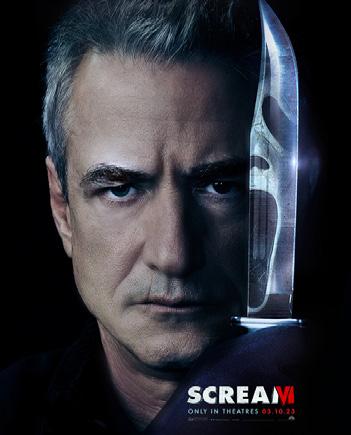
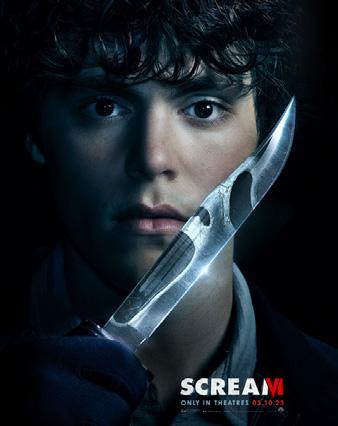
Baseball completed its second sweep in three weeks, defeating IllinoisWesleyan University in all three of their games to stay undefeated on their home turf. They haven’t lost a game on their new field yet despite Illinois-Wesleyan
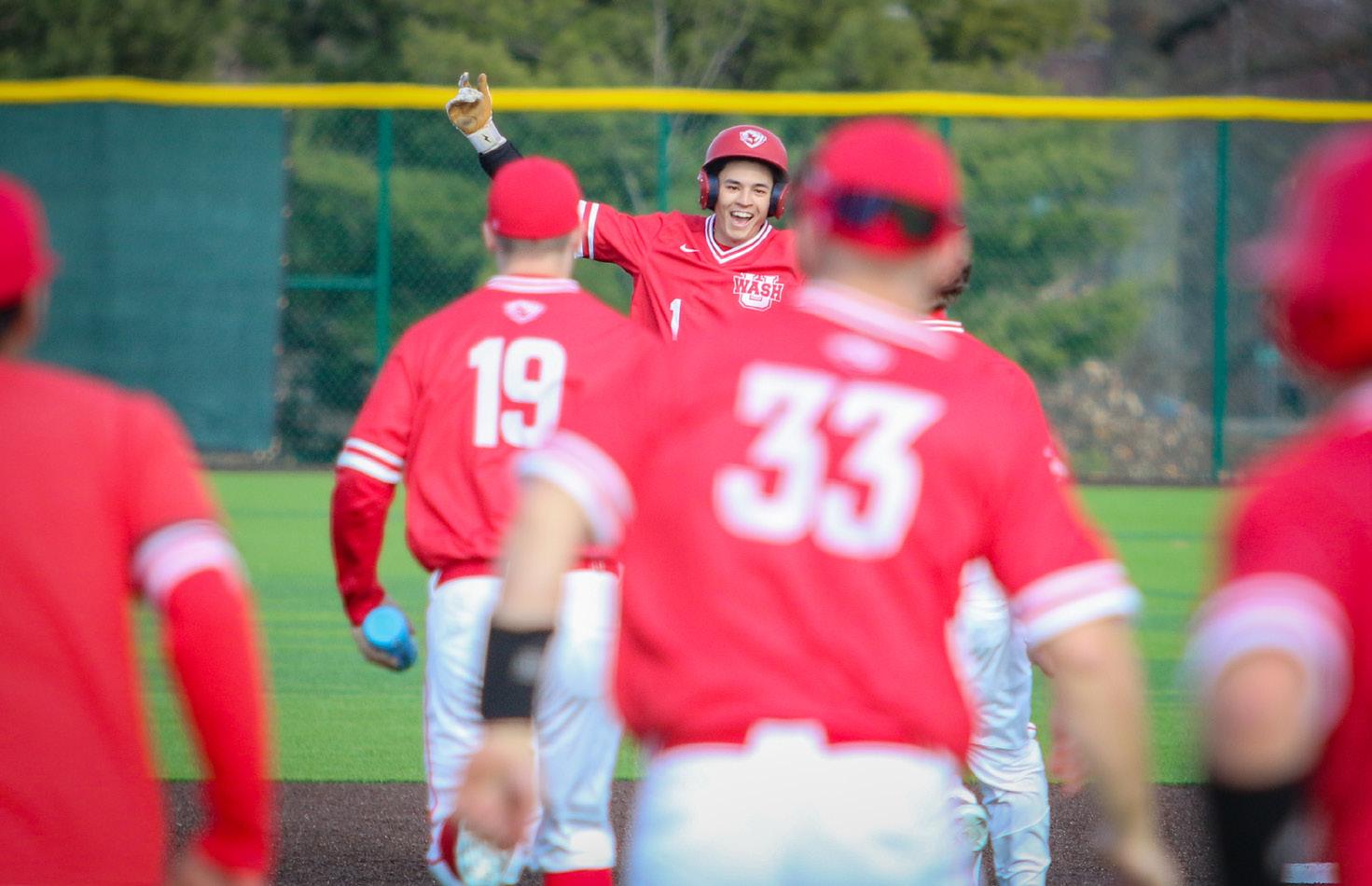
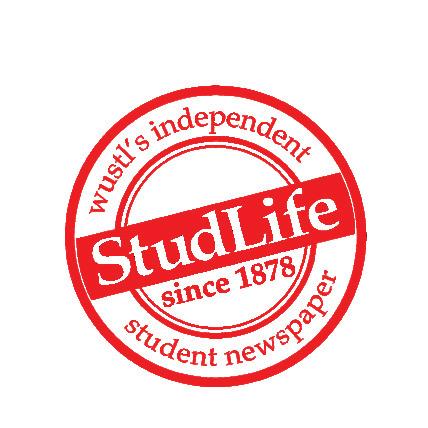
holding a lead at some point in every game. After sophomore Brandon Buday helped the team pull out an extra-innings win in the eleventh inning with a walkoff double, the Bears won the second two games 9-4 and 11-9. In the last
contest, they fought off a three run deficit in the top of the seventh to score seven runs in their last three innings of play alone. They head into a busy spring break schedule with ten games in an eight day period.
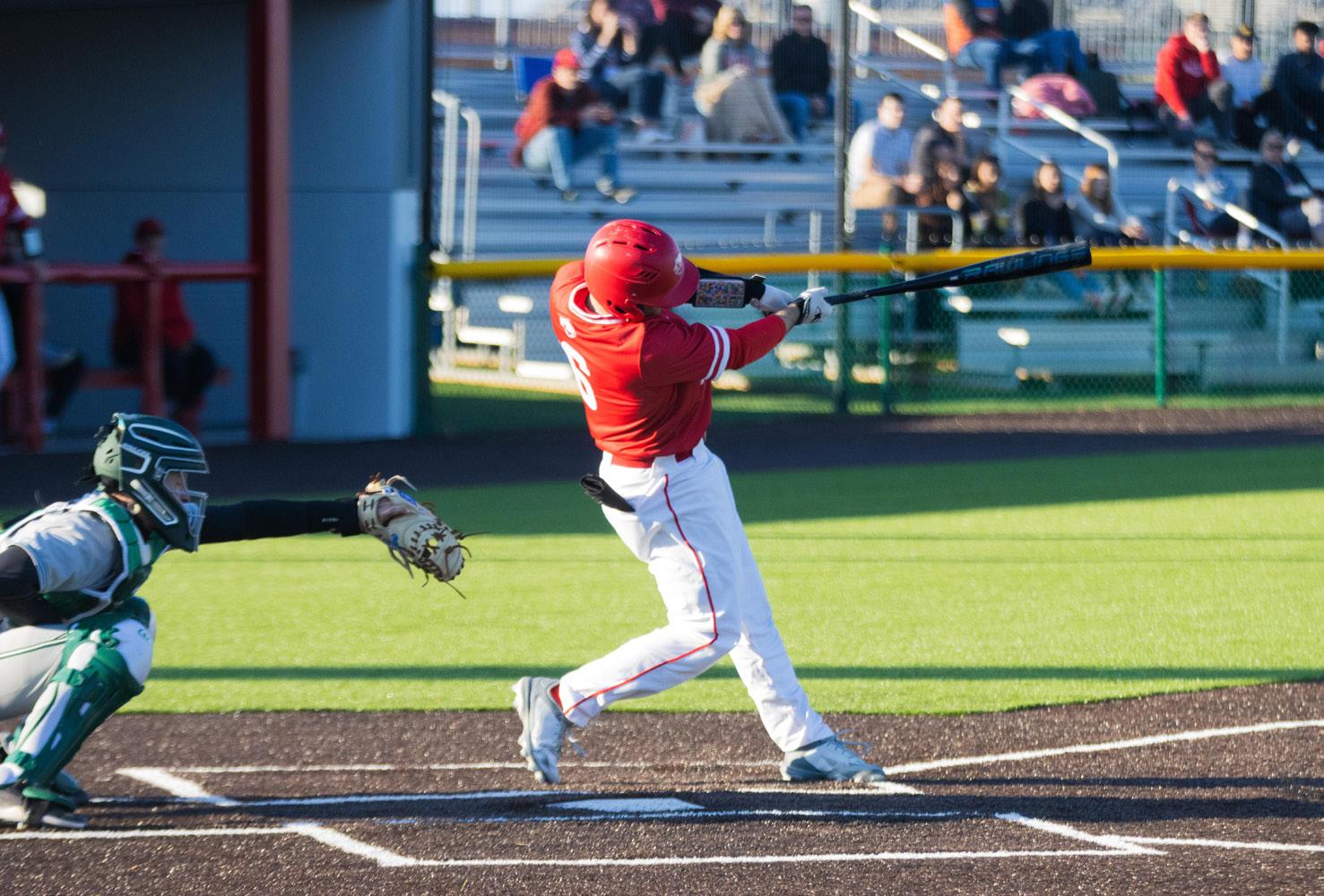



Men’s tennis returned from a successful trip to ITA nationals to hammer two 9-0 wins against University of WisconsinWhitewater and DePauw over the weekend. Their 1-5 loss to No. 2 Case Western at the indoor national championship marks the only blemish on an otherwise spotless record.
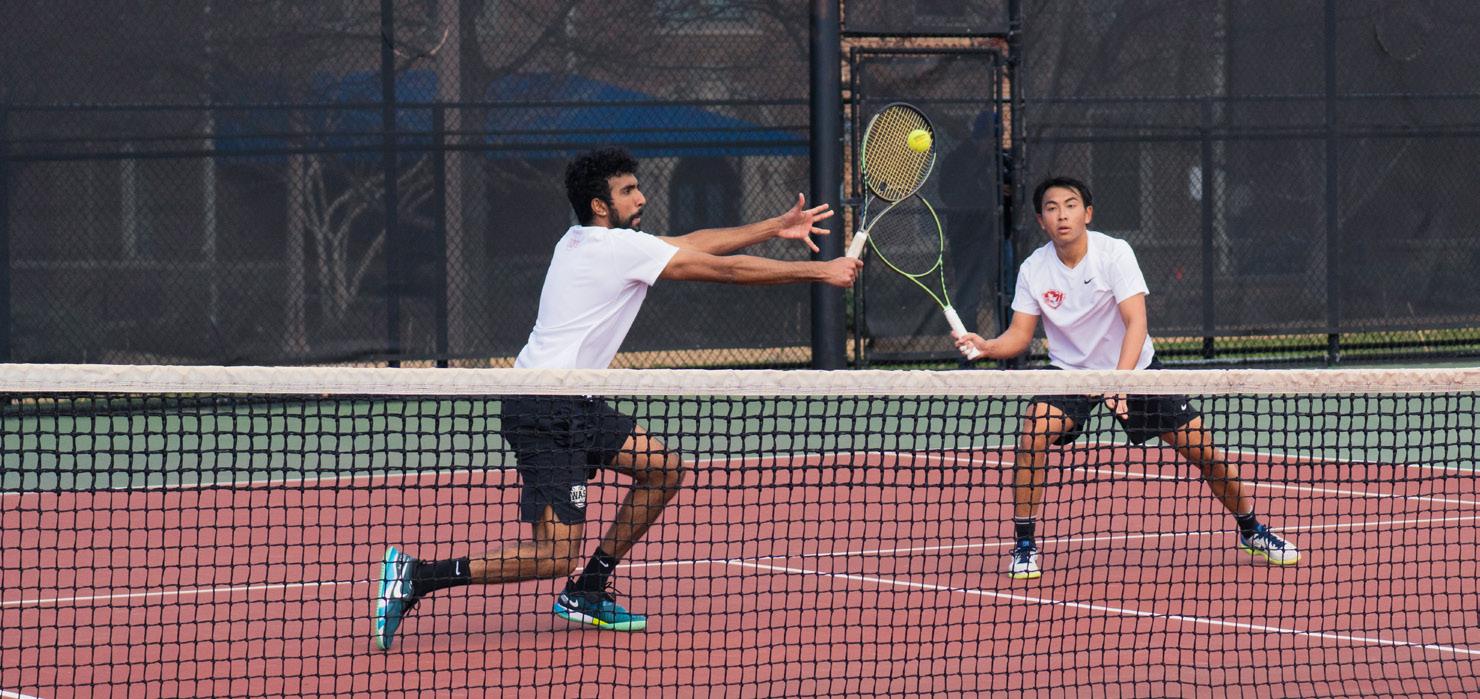
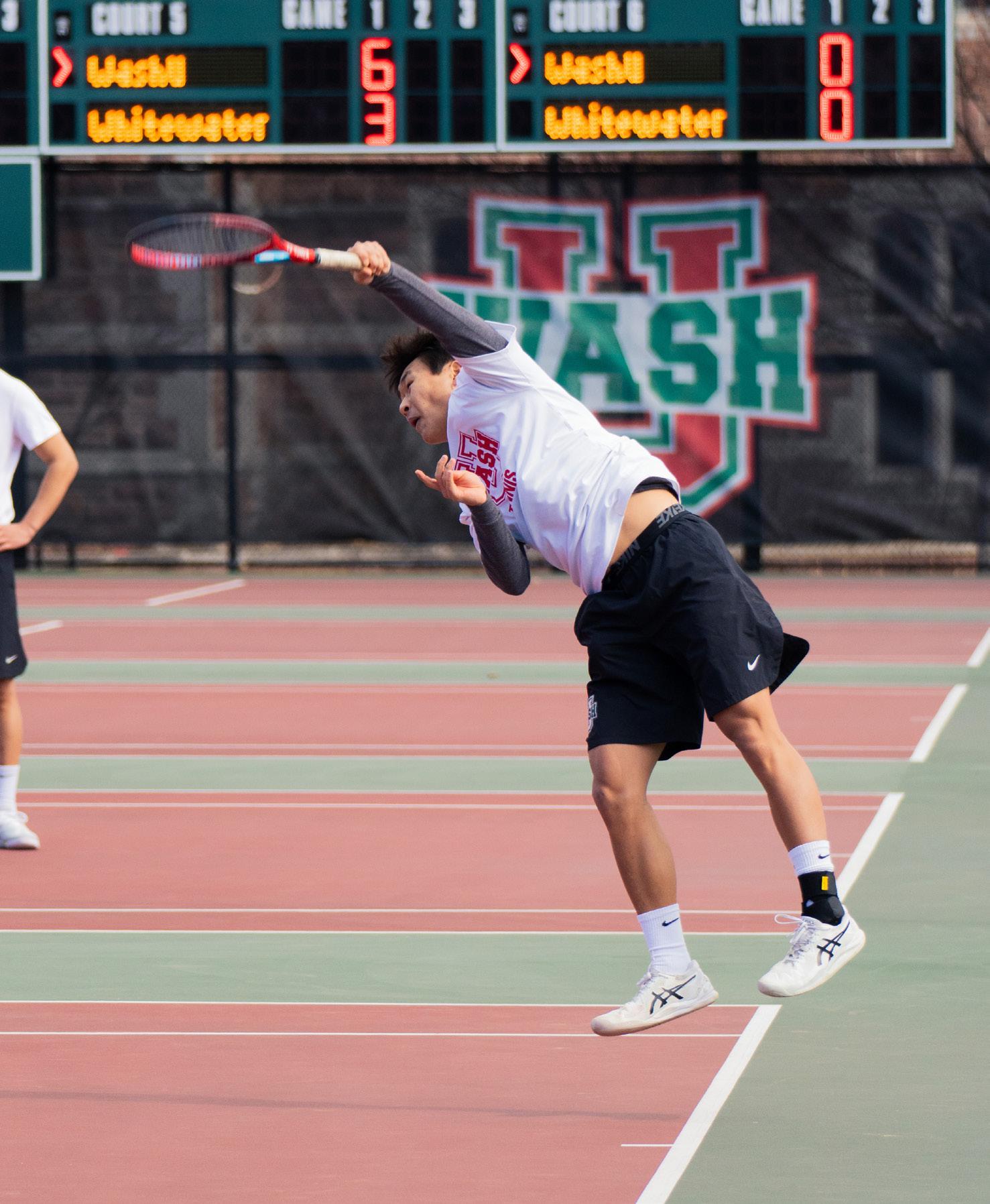
The team travels to Florida over Spring Break to take on nonconference opponents that include Kenyon College and Wesleyan University.
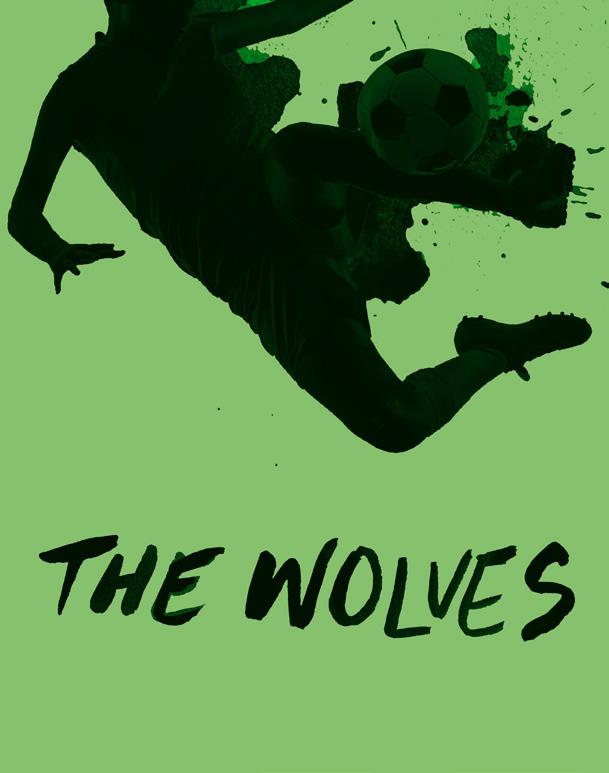
CLARA RICHARDS | MANAGING SPORTS EDITOR | SPORTS@STUDLIFE.COM 8 STUDENT LIFE THURSDAY, MAR 9, 2023 MAR 24–26 AGES 15+ tickets now! STUDLIFE.COM stay connected: drink. dine. play. WEEKLY BAR, RESTAURANT AND FUN GUIDE ON SALE NOW OOD COURT OF THE GALLERIA MALL mas com - 314-725-0808 drink. dine. play. Discover new places to 3-23-23: 7018 PERSHING AVE 314-726-3030 CLAYTON/WASH U WE ARE THE DELIVERY EXPERTS! V LARGE 1-TOPPING PIZZA $1099EACH CODE: 9011 OPEN LATE! SUN-THURS 10:30AM-12AM FRI & SAT 10:30AM-1AM
CLARA RICHARDS | STUDENT LIFE
Brandon Buday celebrates a walk-off double in extra innings in the team’s first game on Saturday. GINGER SCHULTE | STUDENT
LIFE Justin
Zachery slings a hit to left field in Saturday’s first contest against Illinois-Wesleyan.
SAM POWERS | STUDENT LIFE Doubles duo of Abhi Ramireddy and Phuc Huynh work together to nab the line one win with an 8-2 victory.
SAM POWERS | STUDENT LIFE WashU rolled past their non conference opponents in the March 4 match at Tao.






















































